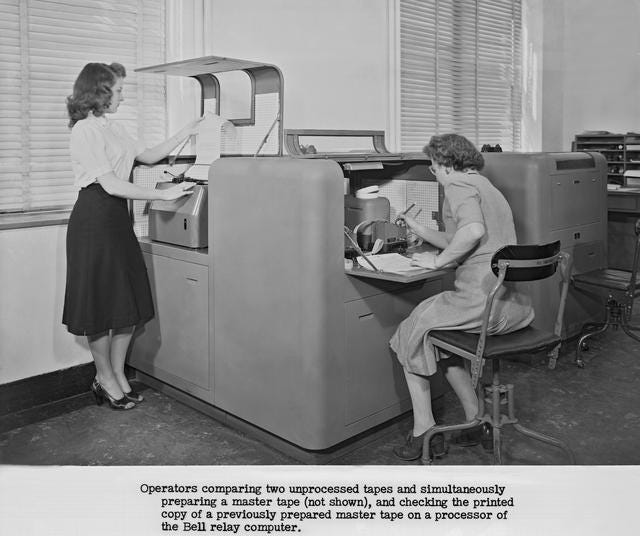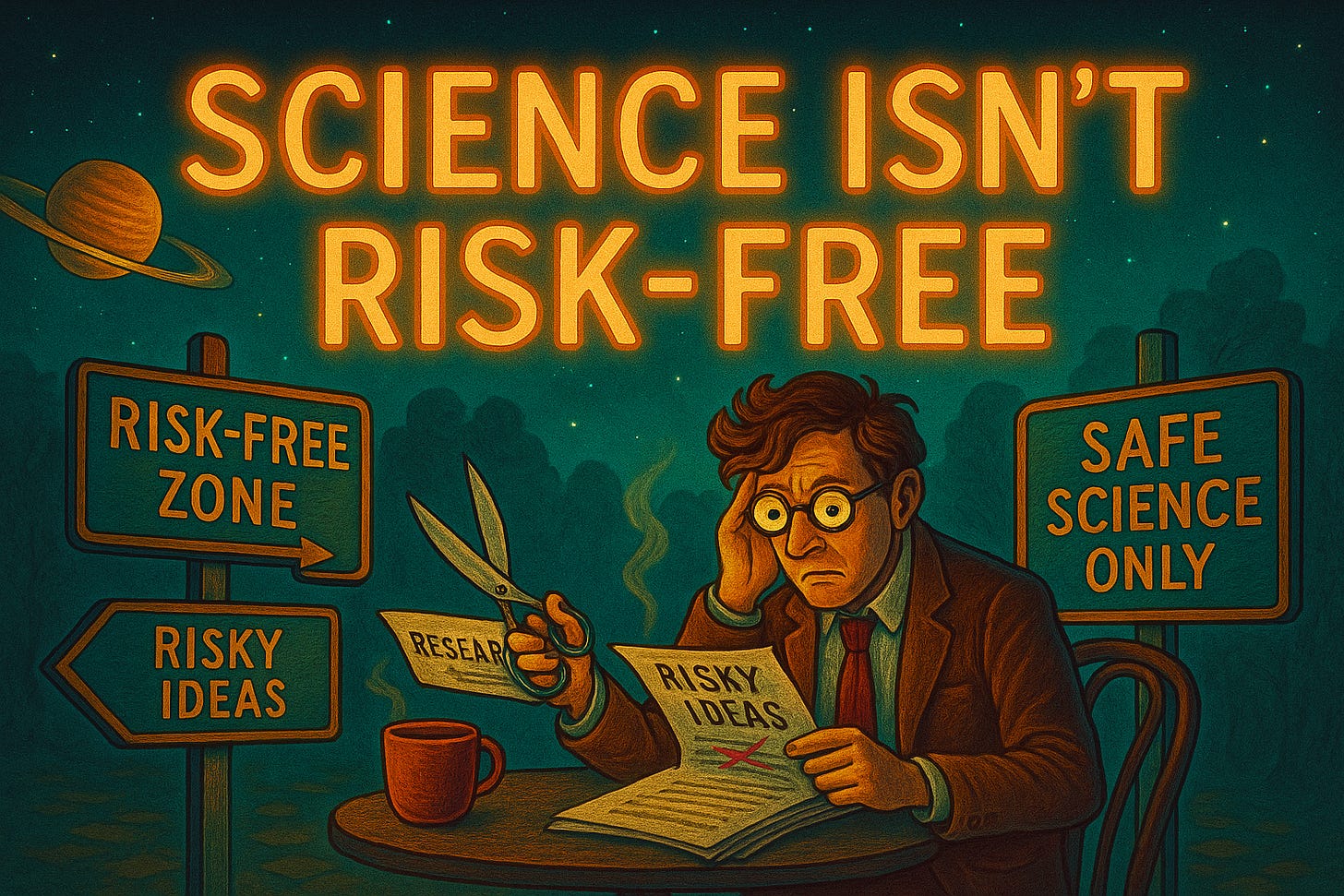The Case for Failure
Budget cuts threaten scientific breakthroughs at a time when we should be rewarding risk
America didn’t bet on mRNA vaccines, gravitational wave detectors, or the Human Genome Project because they were sure things—we did it because risk-taking in science pays off.
But today, the machinery of scientific research — from grantmaking to campus politics to public opinion — is subtly steering scientists toward safety.
Low-risk projects. Feasible deliverables. Topics that won’t attract controversy.
It’s not because scientists have lost their ambition. It’s because the systems around them — funding priorities, institutional incentives, and political pressures — are incentivizing safety.
If we want the next great leap forward, we need to reward boldness — by creating a system that supports risk, tolerates uncertainty, and invests in possibility.
The choice isn’t between safe science and reckless science. It’s between a dynamic future and a cautious decline.
How We Got Here
Public trust in science is falling.
Surveys from Pew Research and Gallup show steep declines in public confidence in scientists and research institutions, particularly along partisan lines. What was once viewed as a neutral quest for knowledge is now often seen as politically charged.
Research itself has been weaponized.
Topics like climate science, vaccine development, AI ethics, and public health are now magnets for political controversy. Congressional scrutiny increasingly targets grantmaking decisions at NSF, NIH, DOE, and even basic research programs.
Universities today face growing pressure to balance bold inquiry with risk management. While their mission remains centered on discovery and open dialogue, institutions are increasingly navigating a complex environment—one shaped by heightened scrutiny from donors, legislators, and the media. As a result, some research agendas and public engagement efforts may be tempered by concerns about perception and funding stability.
Peer review favors the safe bet.
In an environment of tightening budgets and heightened scrutiny, review panels increasingly favor grant proposals that promise certain results within short timelines. Riskier, long-horizon research — the kind that might fail spectacularly but also redefine a field — struggles to get funded.
And the pressure gets even worse when funding is flat or shrinking. During periods of stagnant or reduced federal research budgets, early-career scientists are disproportionately squeezed out. For instance, in FY2019, first-time NIH R01 applicants had a success rate of 18%, compared to 21% for all applicants. National Science Foundation CAREER awards — meant to support promising early-stage researchers — see intense competition with overall funding rates hovering around 26%. When money gets tight, the system doubles down on what’s already safe and known — leaving new ideas, and new innovators, out in the cold.
What Risk Aversion Looks Like on the Ground
Early-career researchers narrowing their questions to avoid political scrutiny.
Grant proposals sanded down to emphasize "feasibility" over ambition.
Institutions steering scholars away from politically sensitive areas.
Innovation grant programs often underused or buried by bureaucracy.
Short-cycle projects dominating over visionary, long-term research.
We’re not just making fewer big bets. We’re building a system where big bets are actively discouraged.
Why This Matters
You don't get breakthroughs without failures.
You don't get transformative ideas if you only fund what looks a guarantee.
You don't stay globally competitive if you don’t reward risk.
The U.S. didn't lead the 20th century because we avoided failure. We led because we were willing to bet on uncertain ideas that occasionally — gloriously — changed the world.
If we let fear of risk govern science, we won't just slow down. We will lose the future.
What’s At Stake
You can’t spreadsheet your way to a moon landing. Or can you…?

Scientific risk — real risk, not just managed uncertainty — is an American tradition.
If we kill it off in the name of safety, predictability, or politics, the loss won't just be scientific—we may never get our flying cars…

